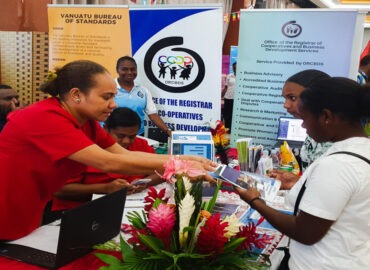ORGANIC AND CLEAN ENVIRONMENT
With an all year round sub-tropical climate combined with the prevailing organic environment – this is where investment and nature delivers.
VANUATU IS AN ORGANIC AND AGRICULTURE-BASED SOCIETY
Agriculture, forestry, fishing and livestock underpins Vanuatu’s economy. The country’s all-year subtropical climate with sufficient rainfall, good sunshine hours and quality soils offers favorable and ideal conditions for agricultural production
FACTS
Vanuatu is an agriculture-based society, but the productive sector has yet to realise its full potential to generate broad-based growth to increase employment, income and the overall wellbeing of the nation.
BEEF
Vanuatu beef is ranked one of the best quality in the world. Vanuatu has one of the most conducive environments in the world for raising beef cattle. Beef is one of Vanuatu's main export commodities.COFFEE
The soil in which the coffee is grown is pure, rich and volcanic providing our well maintained trees with natural nutrients to survive and flourish. The volcanic soil also means that we don’t need to use any harmful fertilisers or chemicals on our coffee trees.ESSENTIAL OILS
Vanuatu's virgin coconut oil is an essential ingredient to other essential oils found to have multi-purpose uses and benefits.PAWPAW
Given the country's sustenance of its organic state, Vanuatu boasts some of the best quality fruits in the world.GREEN AND FRESH
Fresh from the farm are these organic vegetables you can only get here in both local and super markets.PINEAPPLES
The best source of vitamin C you can get from a variety of local and organic sourcesKey Primary Sectors
AGRICULTURE
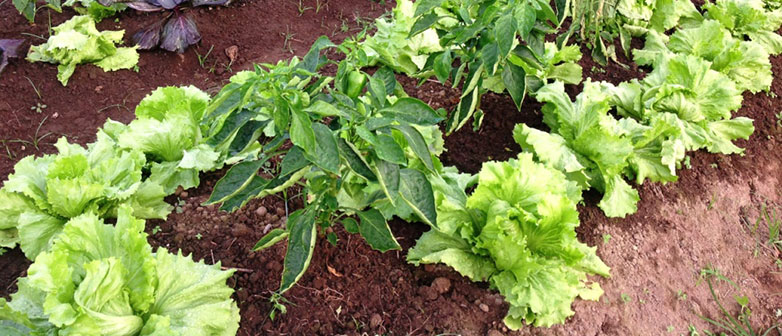
Only one third of Vanuatu's total cultivable land is presently farmed although it is still has an agriculture-dominated economy with copra, cocoa and kava dominating the economic sector. Since 2003, the agriculture sector has grown at an annual rate of 3.3 percent compared to 2.8 percent growth for the economy and an average population growth rate of 2.6 percent per annum.
The domestic market for agricultural products is quite limited. While at least 75% of the population residing in the rural areas and depend on agriculture for their livelihood, productivity, particularly in the subsistence sector, is quite low. The export of traditional commodities and high value commodities, including those that are organically grown, has great potential. In order for these commodities to penetrate these premium niche markets, the volume of production must be increased. The challenge is to increase efficient and sustainable production, and improve market access.
The livelihood of Vanuatu's population, particularly the rural areas, depends entirely on agricultural activities. The trend of the production of the major commodities has declined significantly over the years due to both internal and external factors. To address the declining trend, there is a need to review current legislation, appropriate technology to improve and increase production, create new development initiatives and approaches.
The Department of Agriculture and Rural Development (DARD) aims to build an agriculture sector that is robust and competitive, one that contributes to improved economic growth and trading opportunities, food security, reduction of poverty, and improved livelihoods ensuring also that the benefits derived are equally distributed between the rural and urban populations.
FISHERIES
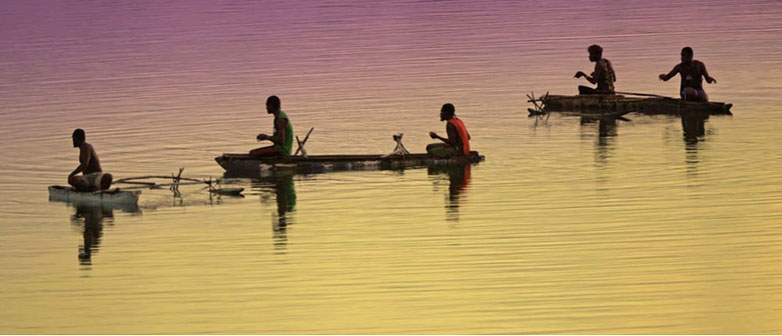
The fisheries sector comprises the oceanic and coastal fisheries resources which are exploited at the subsistence, artisanal and industrial levels.
Subsistence activities include coastal line and net fishing targeting demersal and small pelagic reef and lagoon fish, as well as reef gleaning and collection of shellfish and other invertebrates.
Most of the catch is for home consumption or family distribution, but where markets or handling and distribution facilities exist some part may be sold.
The subsistence fishery is becoming increasingly cash-oriented around urban areas, with varying portions of the catch being sold, as such effective and efficient CMMs are needed to be put in place to manage, monitor and control harvest.
Artisanal fishing with bottom hand lines primarily targets deep-water snappers and groupers. Improvements in catching, preservation, processing, transportation and marketing are needed.
The current domestic fisheries production is not sufficient to meet a rapidly growing population. Commercial harvest of oceanic fisheries resources are landed in overseas ports; as such, little economic activity is generated within Vanuatu from these activities.
The Department of Fisheries is currently engaged in facilitating and promoting Aquaculture development of freshwater fish species as an alternative measure to address poverty, food security, and diversity of eco-activities.
FORESTRY
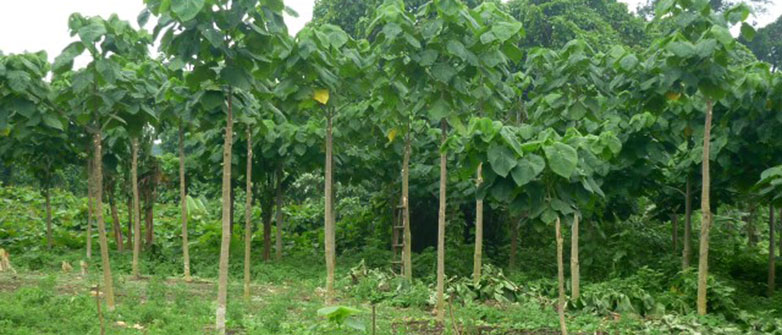
Vanuatu possesses soils and climate that are conducive to timber production. The challenges for this sector will include ensuring replanting of trees at a rate at least equal to the volume being harvested; to foster the utilization of additional species; and to develop additional value-added processing.
Developing a sustainable forestry sector will depend on attracting investors for developing larger commercial timber plantations. A parallel opportunity for development lies on organizing and empowering mobile sawmill operators to expand into value adding wood processing.
Although there is a big decrease to the GDP, the Department of Forests continues to maintain awareness and trainings on reforestation and afforestation. There are 18 nurseries established in all the provinces where farmers can source seedlings to increase the number of tree plantings.
Reports from the provinces indicate the growing number of farmers annually who participate in establishment of private woodlots. Tree planting is regarded as a long-term development that can only be harvested at a certain maturity/age, hence the department's vision for the next five years is to increase its revenue to twice the amount collected in 2000.
LIVESTOCK
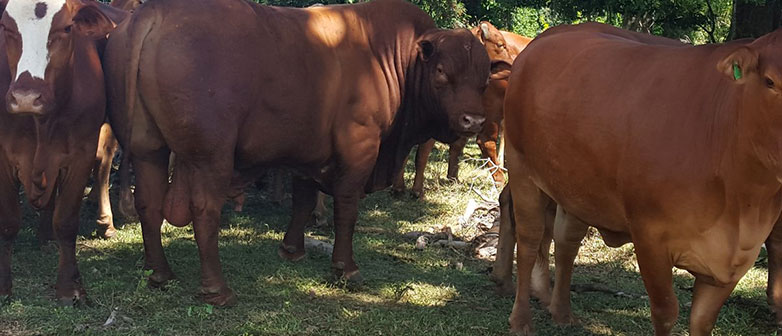
Vanuatu has one of the most conducive environments in the world for raising beef cattle. Domestically the production of beef, pork, poultry and sheep/goat for local consumption forms an essential part of the economy.
Although beef exports have increased in recent years there remain many capacities hindering such growth. Cattle production is limited by poor transport, a lack of credit for rural farmers, and limited government extension programs. Processing for export is rendered by high quality and freight costs compounded by the relatively small-scale level of processing throughput.
Domestically the production of beef, pork, poultry and sheep/goat for local consumption forms an essential part of the rural economy. Any improvement in the capacity of farmers and their communities to produce, process and sell these animals and products would have a positive effect upon rural farmers incomes, and offer opportunities to promote rural enterprises such as butcheries.
Improvements in domestic livestock production and processing would also improve the level of food security and safety in rural communities, while promoting the substitution of local meat for imported products. The Livestock Department is mandated with finding solutions to addressing these issues.
RECENT NEWS
It’s Time to Unlock Vanuatu’s Potential: A Bold Review of the Reserve and Restricted List for a Thriving Economic Future
The Vanuatu Foreign Investment Promotion Agency (VFIPA) is spearheading a comprehensive review of the country’s Reserved and Restricted Investment Lists, […]
Investment Promotion Strategy
Vanuatu Foreign Investment Promotion Agency (VFIPA) has developed a new Investment Promotion Strategy to assist in identifying foreign investments required for […]
VFIPA Engages Public at 2024 PSC Day Event
The Vanuatu Foreign Investment Promotion Agency (VFIPA) proudly participated in the 2024 Public Service Commission (PSC) Day, held from August […]




